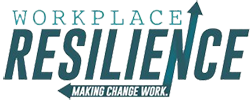 I was sitting in a local coffee shop with my tea trying to focus on my work. However, focus was an uphill battle for me. You see, trying to work when something is “going on” around me is quite difficult.
I was sitting in a local coffee shop with my tea trying to focus on my work. However, focus was an uphill battle for me. You see, trying to work when something is “going on” around me is quite difficult.
Let me explain.
I believe the way my mind works has a lot to do with my childhood. I have a memory of being with my parents in the car at a stoplight. My mom looks over to the couple next to us and she starts talking.
“It looks like they are not getting along. Look how he is trying to avoid her and she is trying to talk to him. I can tell she is getting very frustrated and this has probably been going on for a while. Why doesn’t he just look at her so that she’ll feel better. I can tell that she is very sad about the situation and is very upset. I bet that they’ve been married for a while and look how uncomfortable the kids look in the back. They look so unhappy. Why can’t parents just realize how it affects their kids”?
Now, I remember thinking:
- I can’t understand why she cares about the strangers next to us.
- When I look over there I see nothing.
- How she can weave a whole complete story in one minute?
Now back to my story. I’m sitting in the coffee shop trying to write a proposal. This is just detail work and not my favorite part of my job. However, I am trudging through it so I can say that I’ve accomplished one more thing. Next to me is a woman and her daughter. When I sat down, I saw the woman wiping her face and for a minute, I thought she was crying.
As I work, I try not to think about her but this is very, very hard. You see, I guess my brain is just wired to pick up on other’s emotion. I try to sneak a glance and I see her wiping her face again. She is talking in hushed tones to her adult daughter. I also notice that she does most of the talking while the daughter listens. I sneak a quick glance at the daughter but I don’t catch much. I can’t really hear the words but the tone is serious.
I force myself to focus on my work and stop being my mom. I hear the words; “I helped you out of debt already.” The other words I hear during the conversation is the following, “ you need to make changes in the way you live your life.” The emotion is all one-sided with daughter being stoic. The last thing I hear before they leave is Mom saying, “I think that I have done too much for you in your life”.
I thought about this for a while after they left. There are times that (to a lesser degree) I am the mother in this scenario. I catch myself wanting the companies that I work with to desperately make CHANGES more than THEY actually want the changes to happen. I find myself wanting coaching clients to make CHANGES more than they actually want to make them happen. I sometimes think that if I keep talking, that the change will happen. Maybe I can WILL it to happen.
But that’s not the way life works.
I think that we are all guilty of this at some point in life and we can waste a lot of energy worrying, persuading and trying to make these CHANGES happen. We do this because we want to control our world and a loss of control is not a good feeling.
I think it’s about time for you and me to accept the fact that we have no control over others desire to change. We have control over just YOU and ME. We can lay it out there for others but the ball is in their court.
So let it go.








